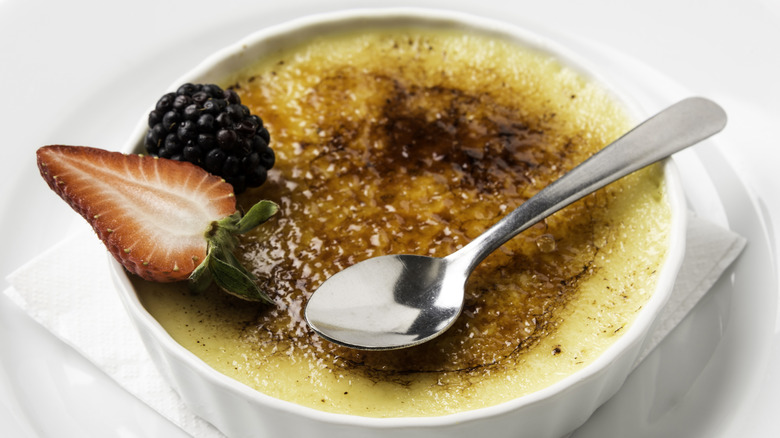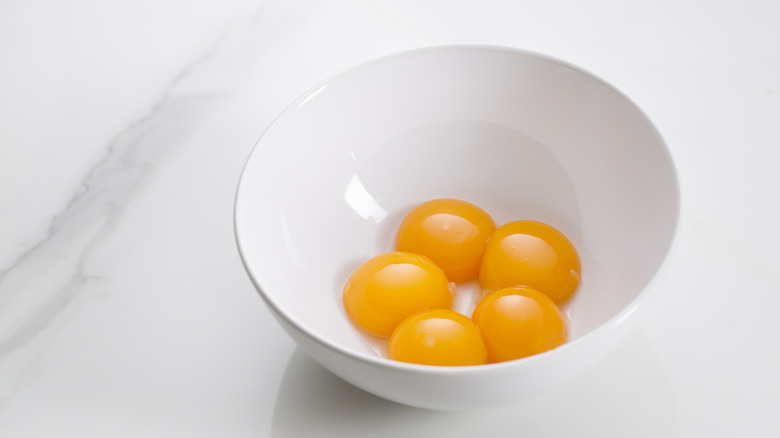The Egg Mistake That Hardens Creme Brulee
Crème brûlée is a study of contrasts. Dense, yet delicate custard must be just barely set and the caramelized sugar that tops the custard must be perfectly browned to provide the crunchy layer we adore. While the dessert is deceptively simple — it's just eggs, sugar, heavy cream, and vanilla, after all — getting the perfect balance of those ingredients, along with the right cooking methods requires attention to detail.
While some recipes can be considered more like guidelines, that's not the case for this dessert. Crème brûlée recipes call for using egg yolks and if you think simply using the whole egg won't make a difference, you're mistaken. In fact, using the white of an egg will dramatically alter the consistency of your custard, making it more rigid, rather than the beautifully soft texture that's ideal. Egg whites used in other recipes to help provide structure will do the same for your crème brûlée, making the custard sturdier than you desire.
Why don't egg whites belong in crème brûlée?
It's science. Egg whites have more protein and less fat than egg yolks. When an egg cooks, the protein in it coagulates — and egg whites coagulate at a lower temperature than egg yolks because the fat in the yolks inhibits this process. That's how you can get a fried egg with the whites completely set and a yolk that's delightfully runny. When you translate that fried egg analogy to crème brûlée, what you want in the custard is the part of the egg that has less protein to clump together and more fat to inhibit that coagulation.
This process is aided by the step in crème brûlée recipes that require you to temper the egg yolks by whisking in warmed cream. Slow coagulation of protein is also why cooking your crème brûlée sous vide lets you skip the egg tempering step. You're slowing down curdling to achieve a just-set custard that's slightly jiggly and delightfully soft. Adding egg whites to your crème brûlée will make it rubbery, as the whites will coagulate more quickly and to a greater degree than will the yolks alone.

